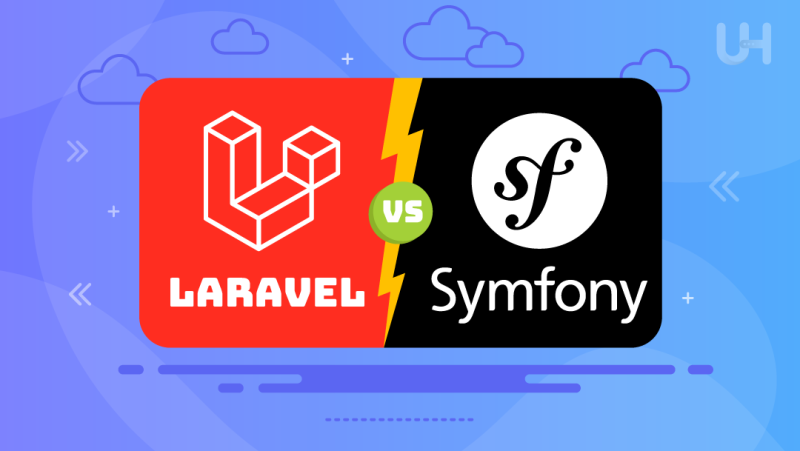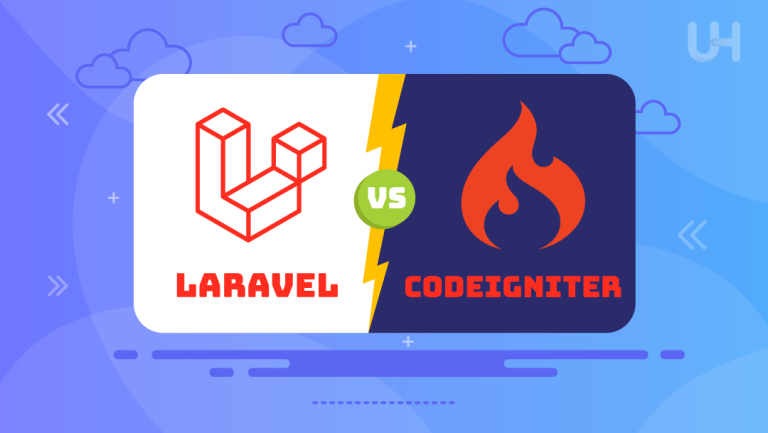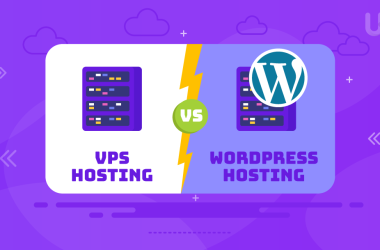Comparing PHP frameworks, one often comes across Laravel vs Symfony at the top of every discussion. Both are robust, multi-purpose, and have huge communities behind them, but they show different needs and tastes. This makes the “Laravel vs Symfony” debate an everlasting argument. In this article, we will dive into every key aspect of both these frameworks to help you decide in 2024—using which one may be better.
With the ever-increasing surge of PHP frameworks, Laravel and Symfony have maintained their top position in the most utilized frameworks for web development. Each framework comes with its own unique features, advantages, and problems. Therefore, developers and businesses must be very keen and sharp when choosing which framework to use in 2024 for their projects.
What is Laravel?
Laravel, created by Taylor Otwell and released in 2011, is a framework that allows you to build powerful web applications with PHP gracefully and simply. It is made for developers to enjoy the development process and make development easy to implement, with features boxed in.
Pros of Laravel
- Ease of Use: Laravel has a nice, expressive syntax, making it very accessible for novices. The framework uses convention rather than configuration methods, so development is easy.
- Extensive Documentation: The documentation is completely transparent and friendly. In addition to this, there are many video tutorials through Laracasts where software developers can learn and train on the framework.
- Inherent Features: Some of Laravel’s most useful built-in features are an Enterprise-grade Eloquent ORM for database management, an invaluable Blade templating engine, and Artisan for command-line operations. All these included in one house tend to enhance the development speed and lower the extra package installation.
- Rich Ecosystem: In the Laravel ecosystem, tools exist for managing servers like Laravel Forge, serverless deployment such as Laravel Vapor, and building admin panels such as Laravel Nova. These provide automation of a series of development and deployment processes.
- Community Support: A large and participative community supports Laravel, with many forums for your questions, tutorials, and how-tos.
Cons of Laravel
- Performance Overhead: For instance, Laravel, which is focused on ease of use and developer experience, could first translate into performance overhead. While this has improved a bit over the years, it might never be as effective for high-performance applications as much more bare-bones options. If you need hosting that ignores these limitations consider DMCA Ignored VPS.
- Learning Curve of Advanced Features: Although Laravel is a friendly framework for any developer, its deeper features and best practices take some time to be harvested—not just by any developer but especially those who are relatively new to PHP frameworks.
What is Symfony?
Symfony is a mature, very flexible PHP framework developed by SensioLabs and released in 2005. It thus strongly focuses on reusable components that might be useful in many other projects, not specifically when using the Symfony framework.
Pros of Symfony
- Flexibility and Customization: Symfony’s component-based architecture fosters a high level of customization. The developer will only use the components he needs, which helps build a solution according to need.
- High Performance: Symfony allows being efficient. It comes with tools for HTTP caching, optimized routing, and efficient dependency injection—all of which make Symfony fast.
- Scalability: Symfony is modular and follows best development practices, so enterprise applications are quickly based upon it and capable of scaling to the limit.
- Comprehensive Documentation: Symfony offers extensive and comprehensive documentation. It ranges from practical examples and best practices to full-fledged explanations of each component, aiming at novice and advanced users.
- Reusable Components: Symfony’s components are decoupled and reusable and can be integrated into other projects and frameworks.
Cons of Symfony
- Steeper Learning Curve: Symfony’s flexibility and configuration possibilities are bought at the expense of higher complexity. It can be challenging for beginners to learn, and creation requires a good knowledge base of PHP development in general.
- Slower Initial Setup: Symfony can be a little slow from the ground up compared to Laravel, as it has vast initial reconfigurability. This can delay the commencement of essential projects.
Power Your Laravel/Symfony Apps With Confidence!
Ready to choose between Laravel’s ease of use or Symfony’s flexibility? Your PHP applications deserve a hosting solution that ensures speed, security, and reliability. UltaHost offers top-notch PHP hosting tailored for both frameworks, providing the performance and support you need for your projects.
Difference Between Symfony vs Laravel

Compared to Laravel, Symfony has several differences. These can then be the deciding factor as to which framework is more suitable for a given project.
Learning Curve
- Laravel: Laravel has a very gentle learning curve, making it appropriate for beginners. The syntax is intuitive and expressive with a “convention over configuration” principle. That means sensible defaults are in this framework and require less additional configuration. The extraction of this learning process becomes further simplified due to comprehensive documentation and Laracasts, which have many video tutorials. A beginner can use Laravel and start developing functional apps directly without much PHP or web development knowledge.
- Symfony: On the other hand, Symfony PHP framework is less user-friendly. It was created for advanced developers who want complete control over their applications. Symfony provides flexibility and configurability at the cost of complexity against this flexibility. One should have a good grip on PHP scripts and the basics of web development to use Symfony properly. Symfony has excellent depth and breadth for a new user, although its documentation is very detailed and complete for both the beginner and the advanced user.
Performance
- Laravel: Laravel’s performance has increased multifold with every release, for it adopts various optimization techniques. Laravel uses caching mechanisms and efficient database queries, resulting in robust performance. Due to its focus on user experience and ease of use, Laravel may have more overhead than other minimalistic frameworks. Anyway, in most cases, Laravel’s performance is more than enough. However, Laravel might not be the best choice for very high-performance or resource-intensive applications.
- Symfony: Symfony stands for performance. It has detailed tools and features to optimize performance, including HTTP caching, optimized routing, and efficient dependency injection. Symfony’s modular architecture ensures that only integrations needed by developers are added, which minimizes any excess overhead and enhances its performance. Its focus on adhering to best practices and design patterns in Motorola also makes it efficient. In these contexts, Symfony’s performance power ensures that this framework is in strong contention.
Flexibility and Personalization
- Laravel: Due to its flexibility, Laravel can be used for a wide range of applications, from small projects to large enterprise systems. Extending any functionalities required in the modular structure with extreme improvements in package ecosystems is relatively easy. Laravel has nearly all everyday use cases covered out of the box; however, for very complex applications, developers would feel confident relying on other packages or even custom code to deliver this level of customization. This makes Laravel suitable for a wide range of projects, but it probably will not be able to match the fine-grained control Symfony offers.
- Symfony: Flexibility and customization are its most outstanding features. Its component-based architecture gives developers the highest flexibility possible to develop highly customized and scalable applications. The components in Symfony are decoupled, reusable, and modular. Thus, a developer can use only parts of them, if so wished, to build solution-oriented applications that correspond perfectly to given requirements. This high flexibility makes Symfony especially suitable for large enterprise applications and projects with complex business logic. Its modularity and setting based on reusable components provide unique customization possibilities.
Built-in Features
- Laravel: Laravel, at its core, is endowed with much that makes it a rapid development framework—there are few areas where one needs external packages. Some of the main features include Eloquent ORM, which is used as a database management system; Blade templating engine for building dynamic web pages; Artisan CLI, a command-line interface that allows the performance of operations such as running migrations, seeding, etc., from the command line; in-built support for authentication and authorization, task scheduling, and queue management among others. This vastly helps a developer build robust applications fast without reinventing the wheel or any kind of extensive configuration.
- Symfony: Symfony provides a robust toolkit and bundle of pre-developed functional elements, though it’s a bit harder to set up than Laravel. This method of flexibility and modularity in Symfony means that it respects the developer when setting up and configuring many features independently. This can be useful to developers who need critical control over their applications. Symfony provides rich components like the Twig templating engine, Doctrine ORM, Symfony Console, etc. While these packages provide enormous capabilities, they require much more initial setup and configuration than Laravel’s out-of-the-box solutions.
Which One Should You Choose in 2024?
The choice between Symfony or Laravel would, of course, depend on several factors: the project’s needs, the expertise of your team, and finally, the goals for that development.
Choose Laravel if:
- You want ease of use and a smooth learning curve.
- You must build applications fast and effectively.
- Your project benefits from Laravel’s built-in features and ecosystem.
- You are looking for an opinionated framework with extensive community support.
Choose Symfony if:
- You need highly flexible and Managed frameworks that are very scalable for extensive applications.
- You want granular control of your application’s architecture.
- Your project has extensive customizing and provides reusability in components.
- You have a development team experienced with PHP and Symfony concepts.
Conclusion
Ultimately, this will come down to the type of project and style of development in 2024. Laravel excels in user-friendly rapid development for small projects. At the same time, Symfony is second to none, where flexibility and scalability must be ensured for large-scale enterprise applications or highly customized projects. For secure and reliable hosting, check out Windows VPS Hosting. The awareness mentioned above of these differences will help you pick a framework so that you can confidently develop solid and scalable applications.
Choosing between Laravel and Symfony depends on your project needs. Ensure top performance with UltaHost’s Fast 10Gbps Dedicated Servers, providing unmatched speed and reliability for all your PHP applications.
FAQ
Which framework is easier for beginners, Laravel or Symfony?
Laravel is easier for beginners due to its intuitive syntax, comprehensive documentation, and community support. Symfony is more suitable for experienced developers with a solid understanding of PHP.
Which framework performs better, Laravel or Symfony?
Symfony generally performs better due to its optimized architecture and performance-focused features. Laravel has improved performance but may introduce some overhead due to its focus on developer experience.
Can Laravel handle large-scale enterprise applications?
Yes, Laravel can handle large-scale applications but may require additional custom code and packages. Symfony is often preferred for large-scale enterprise projects due to its scalability and flexibility.
What are the main differences in built-in features?
Laravel has many built-in features like Eloquent ORM and Blade templating for rapid development. Symfony requires more configuration but offers robust tools and reusable components for customization.
Which framework is better for high customization and flexibility?
Symfony is better due to its component-based architecture and modular structure. Laravel is flexible but may not offer the same level of control.










